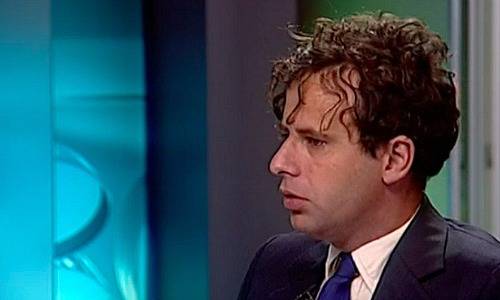Iran Investments: Early Mover on Parade
Investing in Iran may become en vogue in the banking industry after the end of the sanction regime. Clemente Cappello, head of Sturgeon Capital, knows how it is done.
Sturgeon Capital, a U.K.-based hedge fund, is one of the early entrants in a market only just opened to Western business: Iran. The target of sanctions for decades, the country's willingness to reach a negotiated settlement about its contested nuclear ambitions paved the way for business in a country with 75 million inhabitants.
Clemente Cappello, the founder and CEO of Sturgeon Capital, in September launched an Iran fund, making him a «first mover» in the country of the ayatollahs and an in-demand partner for interviews across the world. «Bloomberg News» and «CNBC» were among those eager to tap his knowledge on a country about which most business people know very little.
Road Show
Cappello is doing his tour through Switzerland to convince family offices and banks to invest in Iran. He knows the Swiss banking world well having worked as an analyst at Notz Stucki, the Geneva-based hedge-fund pioneer.
He's finding the task daunting as big banks in particular are reticent about the idea of investing in a country, which only recently threatened Israel with destruction – and they are also advising their customers not to do so either, Cappello said in an interview with finews.ch.
Old Foe of Israel
This won't come as much of a surprise given the close relationship between Israel and the U.S. and given that sanctions have only just been lifted. The U.S. came down hard on those found in breech of the sanctions, as Credit Suisse (CS) found out not so long ago.
Both big Swiss banks sent their representatives to accompany Swiss President Johann Schneider-Ammann on his recent trip to Tehran, suggesting that at least they are closely monitoring the developments.
Cappello definitely is less concerned. He launched his Bermudas-based Sturgeon Central Asia/Sturgeon Iran Strategy fund even before sanctions had been lifted formally. He claims to have been compliant with the sanction regime at all times.
No Surge so Far
The fund is investing in companies not affected by the sanctions and not linked with the regime. Cappello only bought shares in listed companies, in the glas and paper industries, companies manufacturing tools for the oil industry or financial-services industries.
Of course, the sums in circulation so far are minute: Cappello is managing $1 million (!) according to his Iran strategy. A number he wants to increase rapidly. Hence his road show in Switzerland. Iran is an emerging market with a young and well educated population and labor costs as low as Vietnam's.
Cappello doesn't expect his investments to hit political stumbling blocks, because he thinks that the U.S. won't be able to convince the world to impose sanctions for a second time round.




























